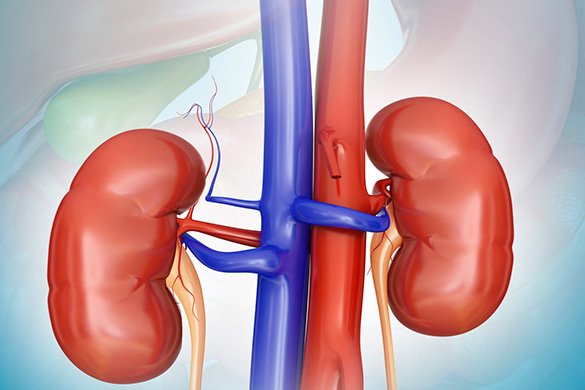Kidney biopsy is a type of medical procedure in which a portion of kidney tissue is taken for examination. This procedure is typically performed to diagnose or monitor kidney disease, such as nephrotic syndrome or glomerulonephritis. It is used to monitor the treatment and recovery for kidney disease.
The process of a kidney biopsy typically begins with the patient being placed under sedation or general anesthesia. A thin, hollow needle is then inserted via skin into kidney, often guided by ultrasound or computed tomography (CT) imaging. Once the needle is in the proper location, a small portion of kidney tissue is taken and sent to a laboratory for analysis.
After the procedure, the patient will typically be monitored for a period of time to ensure there are no complications. The patient may experience some pain and discomfort in the area where the needle was inserted, and may also have blood in their urine for a short period of time.
Types of Kidney Biopsy
There are different types of kidney biopsy procedures, including percutaneous biopsy, ultrasound-guided biopsy, and CT-guided biopsy. Each type has its own different diseases and problems, and the choice of procedure will depend on the patient’s individual circumstances and the reason for the biopsy.
- In percutaneous biopsy is a procedure in which a needle is put through skin and into kidney. This procedure is typically performed under local anesthesia and sedation, and is often the preferred method for diagnosing and monitoring kidney disease.
- In ultrasound-guided biopsy, a thin, hollow needle is guided into the kidney using ultrasound imaging. Under local anesthesia and sedation, this procedure is performed, and is essentially used to diagnose and monitor kidney disease.
- In CT-guided biopsy, a thin, hollow needle is guided into the kidney using CT imaging. This procedure is typically performed under general anesthesia, and is often used to diagnose and monitor kidney disease.
Treatment of kidney diseases
The most common complication of a kidney biopsy is bleeding, which can occur if the needle punctures a blood vessel. In rare cases, bleeding can be severe and may require additional treatment. Other potential complications include infection, allergic reactions to the anesthesia, and damage to the kidney.
The treatment of kidney biopsy depends on condition that is diagnosed or monitored. For example, if the biopsy reveals a kidney infection, antibiotics will be prescribed to clear the infection. If the biopsy reveals inflammation or scarring in the kidney, a corticosteroid medication may be prescribed to reduce inflammation.
If biopsy tells if kidney has a tumor, additional tests such as CT scan or MRI may be performed to determine the size and location of the tumor, as well as whether it has spread to other parts of the body. Surgery may be required to remove the tumor, and if the tumor is cancerous, radiation therapy or chemotherapy may also be needed.
Post Kidney Biopsy Medication
Medications that may be prescribed after a kidney biopsy include pain relievers to manage any discomfort or pain, blood thinners to reduce the risk of bleeding, and antibiotics to prevent or treat infection.
Medications commonly used in the treatment of kidney disease include:
- Steroids: These medications, such as prednisone, help to reduce inflammation and swelling in the kidneys. They are often used to treat nephrotic syndrome and other types of kidney disease.
- ACE inhibitors: These medications, such as lisinopril, help to lower blood pressure and reduce the workload on the kidneys. They are often used to treat kidney disease, particularly in patients with hypertension.
- ARBs: These medications, such as losartan, also help to lower blood pressure and reduce the workload on the kidneys. They are often used to treat kidney disease, particularly in patients with hypertension.
- Immunosuppressants: These medications, such as cyclosporine or tacrolimus, help to suppress the immune system and reduce inflammation in the kidneys. They are often used to treat kidney disease, particularly in patients with glomerulonephritis.
- Antibiotics: These medications, such as amoxicillin, are often used to treat kidney infections.
It is important to note that kidney biopsy is a diagnostic and treatment tool that should be performed by a best kidney Doctor and only when necessary. It is not a routine procedure and carries a small risk of complications such as bleeding, infection and pain. The patient should always be informed by their healthcare provider of the risks and benefits of the procedure.


